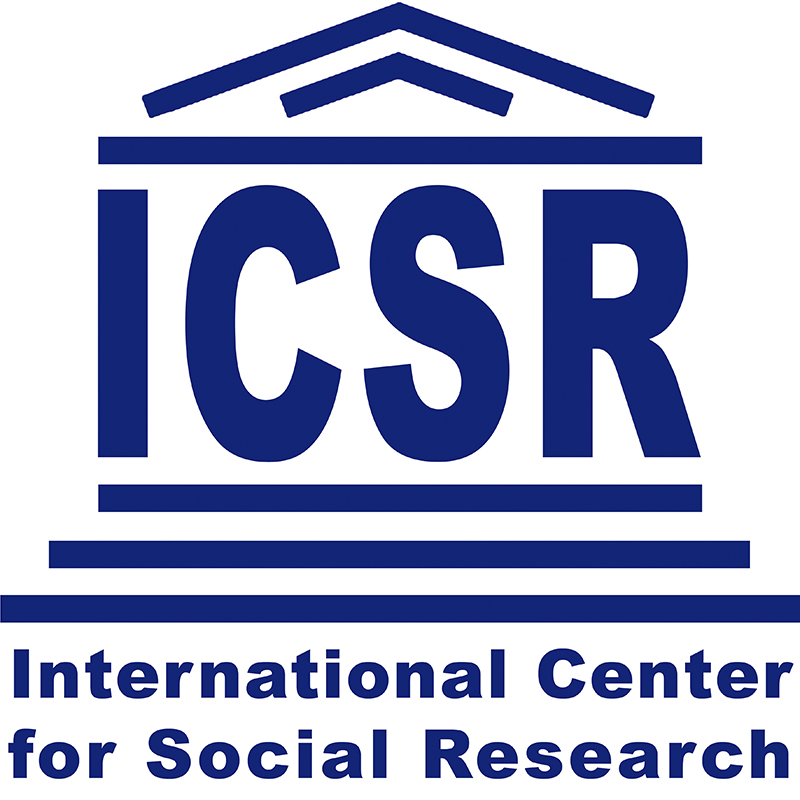The International Center for Social Research's (ICSR's) Code of Ethics (the Code) sets forth the principles and ethical standards that underlie sociologists' professional responsibilities and conduct. These principles and standards should be used as guidelines when examining everyday professional activities. They provide guidance on issues that sociologists may encounter in their professional work.
The Code is not exhaustive. Any conduct that is not specifically addressed by this Code of Ethics is not necessarily ethical or unethical. Membership in the ICSR commits members to adhere to the ICSR Code of Ethics and to the Policies and Procedures of the ICSR. Violations of the Code may lead to the termination of membership. ICSR members subject to the Code of Ethics may be reviewed under these Ethical Standards only if the activity is part of or affects their work-related functions, or if the activity is sociological in nature. Personal activities having no connection to or effect on sociologists' performance of their professional roles are not subject to the Code of Ethics.
PREAMBLE
The Code of Ethics (the Code) of the International Center for Social Research (ICSR) sets forth the principles and ethical standards that underlie sociologists’ scientific and professional responsibilities and conduct. These principles and standards should be used as guidelines when examining everyday scientific and professional activities. They constitute normative statements for sociologists and provide guidance on issues that sociologists may encounter in their work.
The Preamble and General Principles of the Code are aspirational goals to guide sociologists toward the highest ideals of Sociology. The foundation of a set of ethical standards for a sociologist’s work-related conduct rests on a personal commitment to a lifelong effort to act ethically; to encourage ethical behavior by students, supervisors, supervisees, employers, employees, and colleagues; and to consult with others as needed concerning ethical problems. Drawing form personal values, culture, and experience, sociologists may supplement, but must not violate, the values and rules specified in the Code of Ethics. Sociologists should strive to adhere to the principles in the Code of Ethics.
GENERAL PRINCIPLES
The following General Principles are aspirational and serve as a guide for sociologists in determining the ethical course of action in a specific context. They exemplify the highest ideals of professional conduct.
Principle 1: Professional Competence
Sociologists strive to maintain high levels of competence in their work; they recognize the limitations of their expertise; and they undertake only those tasks for which they are qualified by education, training, or experience. They recognize the need for ongoing education in order to remain professionally competent; and they utilize the appropriate scientific, professional, technical, and administrative resources needed to ensure competence in their professional activities. They consult with other professionals when necessary for the benefit of their colleagues, students, research participants, and clients.Principle 2: Integrity
Sociologists are honest, fair, and respectful of others in their professional activities—in research, teaching, practice, and service. Sociologists do not knowingly act in ways that jeopardize either their own or others’ professional welfare. Sociologists conduct their affairs in ways that inspire trust and confidence; they do not knowingly make statements that are false, misleading, or deceptive.Principle 3: Professional and Scientific Responsibility
Sociologists adhere to the highest scientific and professional standards and accept responsibility for their work. Sociologists understand that they form a community and show respect for other sociologists even when they disagree on theoretical, methodological, or personal approaches to professional activities. This is the essence of collegiality. Sociologists also value the public trust in Sociology and are concerned about their ethical behavior and that of other sociologists that might compromise that trust. While endeavoring always to be collegial, sociologists must never let the desire to be collegial outweigh their shared responsibility for ethical behavior. When appropriate, they consult with colleagues to assess, prevent, and/or report unethical conduct.Principle 4: Respect for People’s Rights, Dignity, and Diversity
Sociologists respect the rights, dignity, and worth of all people. They strive to eliminate bias in their professional activities, and they do not tolerate any forms of discrimination based on age, gender, race, socioeconomic status and socioeconomic origins, ethnicity, national origin, religion, sexual orientation, gender identity, gender expression, disability, health conditions, political affiliation, marital status, domestic status, parental status, or any other applicable basis proscribed by law. They are sensitive to cultural, individual, and role differences in serving, teaching, and studying groups of people with distinctive characteristics. In all of their work-related activities, sociologists acknowledge the rights of others to hold values, attitudes, and opinions that differ from their own.Principle 5: Social Responsibility
Sociologists are aware of their professional and scientific responsibility to the communities and societies in which they live and work. They apply and make public their knowledge in order to contribute to the public good. When undertaking research, they strive to advance the science of Sociology and to serve the public good. At the same time, sociologists strive to be aware of situations that may result in harm to individuals, groups or communities.Principle 6: Human Rights
In the course of their research, teaching, practice, and service, sociologists are committed to professional behaviors consistent with promoting the human rights of all people, including other sociologists. In their professional lives, sociologists strive to use their knowledge and skills to advance the cause of human rights worldwide.
